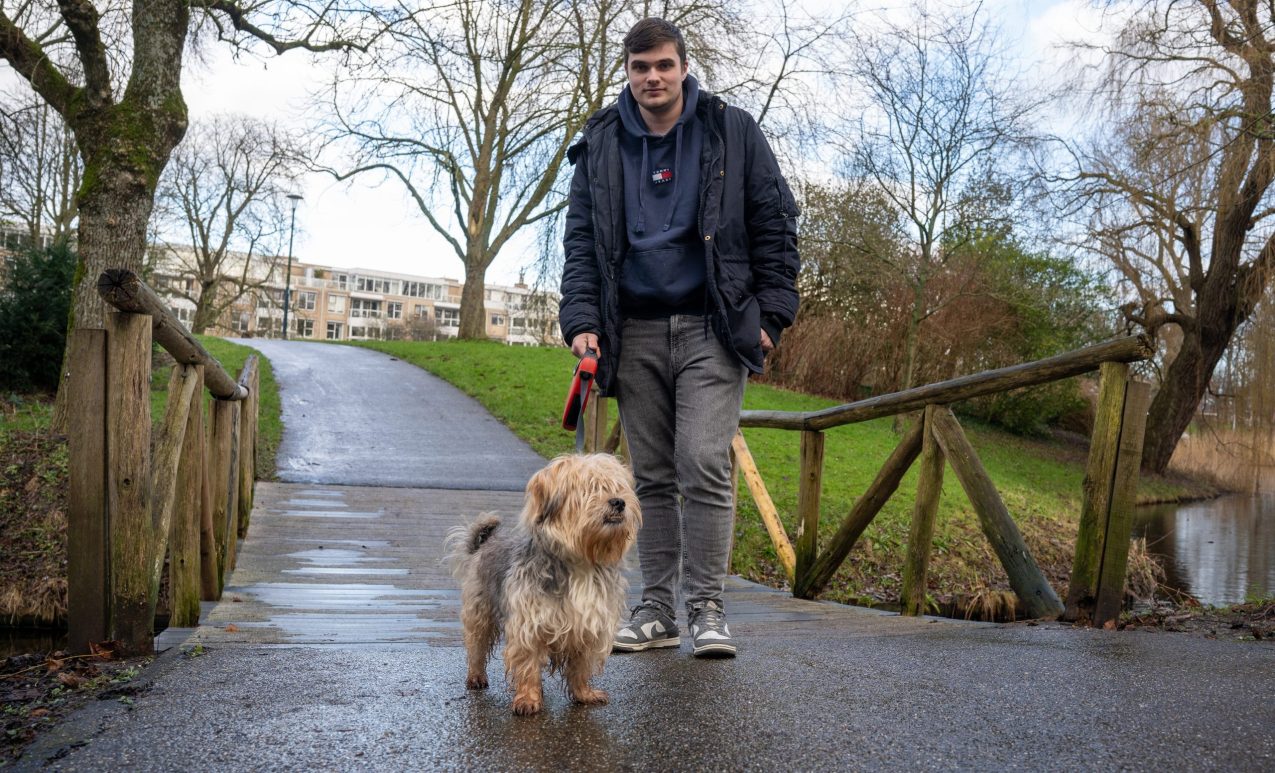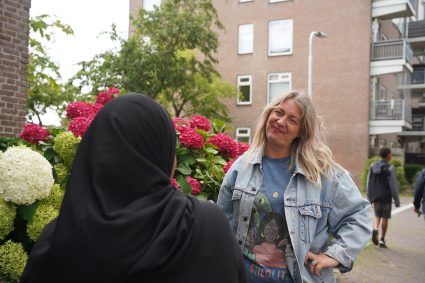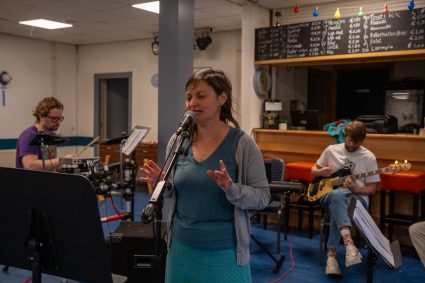Kian's life as a young carer
Kian (18) studies, works and is also a carer. Two years ago, his mother became ill and bedridden, after which she could no longer function independently. His father takes care of his mother and the children. Kian helps with the dog, shopping, making food and doing fun things with his two siblings. "My parents want to burden us as little as possible so we can be ourselves. You help where you can."
That Kian is a carer, he did not know until recently. He looked up things about his situation and had conversations. "I think there are many more young people in the same situation as me. They probably do not know they are carers or, like me, only find out later."
Before Kian became a carer, his life looked different. For instance, he did outings with the whole family and sometimes went on holidays. Now that is a different story, Kian no longer does outings with the whole family.
School
Kian says: "When I'm at school, I want to think the least about home." His classmates know what is going on at home. "My teacher suggested sharing the story with the class. We were talking about everyone's family situation anyway, so I'm not going to lie about it. I'm glad I told it, then everyone knows what's going on. I do find it difficult to bring friends home. My mother doesn't mind, but I find it more difficult myself because I think she needs peace and quiet. I don't want to be a burden to her. Sometimes it is also difficult to hear that classmates are going on fun outings or holidays. It is difficult for us to do such things because my mother can hardly get out of bed."
Living alongside carer
Kian does an internship at Action two days a week and works about 16 hours a week at Albert Heijn. "I like school, it's good to learn new things. Besides, you get out of the situation at home for a while. I like to focus completely on work or an internship, so I don't think about home for a while."
Amaryllis
The family receives home care and domestic help. There is also support from Amaryllis, the welfare organisation in Leeuwarden municipality. "I came into contact with Amaryllis through a social worker at our community centre. At one point, she had conversations with my mother," Kian says. They helped with application municipality and think along in solutions.
"I have experienced fun things thanks to Amaryllis. They organise a lot of outings, like I went bowling and I got to go with them to Walibi. I really liked bowling and then I was invited to a football tournament. That was fun too, we even won. It is important for us as children to step out of the situation and relax sometimes. They also still ask how we are doing," Kian explains.
According to Eveline from Amaryllis' Mantelzorg team, it is important to raise awareness around young informal carers. "For example, one in four young people are young informal carers. Also consider young people who, for example, are struggling with loved ones with addiction and/or mental vulnerability. Schools can play an important role in this. If it is made more discussable among students, the subject will be taken out of the taboo more, allowing young people to find more support with each other and with their mentor.
"Why can't it just go well?"
Hardest thing about being a carer
"I find the hardest thing about being a carer is seeing that my mother is doing badly. Why can't things just go well? It's especially hard because it's not clear what she has. That uncertainty is awful. I'm never angry about the situation, but disappointed."
Tip
Finally, Kian has a tip for other young carers: "Try to keep doing as many fun things as possible. Do an education that suits you or find fun work. Keep working on yourself and don't forget yourself, that way you will last the longest. I think it is difficult for many people to get out of the situation. Take care of yourself!"



